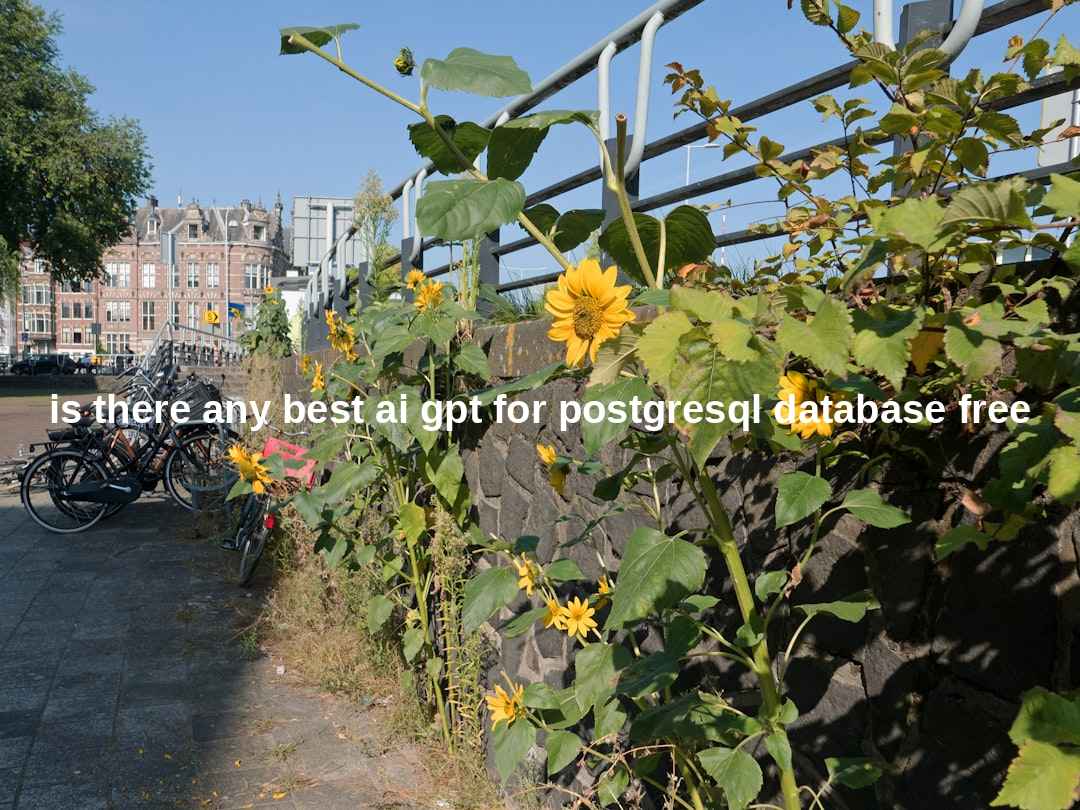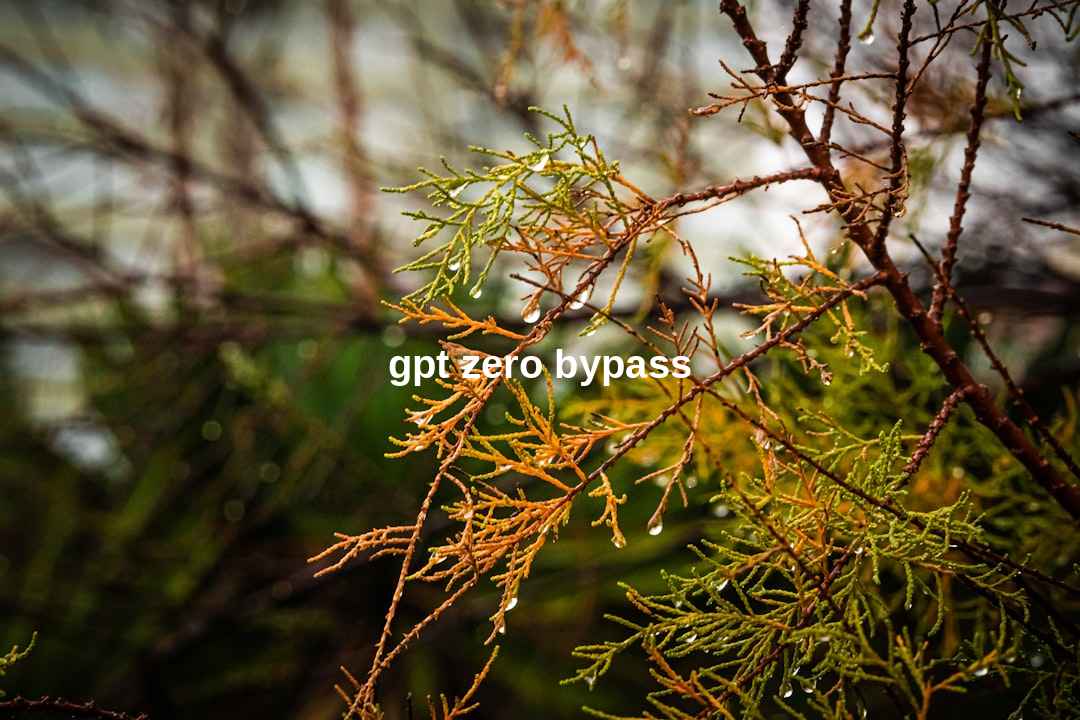In recent years, the advent of AI GPT (Generative Pre-trained Transformer) technology has revolutionized various domains, offering unprecedented opportunities for automation and intelligence augmentation. In the realm of database management, especially for systems like PostgreSQL, there is a growing interest in leveraging AI GPT capabilities to streamline operations, improve performance, and facilitate more complex data interactions. As organizations increasingly look for cost-effective solutions, one question emerges with notable frequency: is there any best ai gpt for postgresql database free? This article aims to delve into this inquiry, providing insights and exploring the possibilities of integrating free AI GPT tools with PostgreSQL databases.
Exploring AI GPT Possibilities for PostgreSQL Database Management
The integration of AI GPT into PostgreSQL database systems can transform how developers interact with their databases and how organizations derive insights from their data. AI GPT technologies can aid in tasks ranging from query optimization to data analysis, bringing an unprecedented level of efficiency and intelligence to database management.
Enhancing Data Interactions with AI GPT
Implementing AI GPT can vastly improve how users query and interact with databases. AI’s natural language processing abilities mean that users can often simply ask for the data they need in plain English, and the AI can translate this into complex SQL queries. This bridging of the gap between human language and database query language stands to revolutionize user experience for developers and non-technical users alike.
Another significant benefit is the potential for real-time data analysis. AI GPT tools can offer immediate insights by evaluating data trends and patterns, helping businesses to make more informed decisions. Furthermore, these tools can assist in predictive analytics, suggesting actions or highlighting potential future trends based on existing data, thus providing PostgreSQL database users with powerful forecasting tools.
In terms of query optimization, AI can suggest alternative, more efficient queries or automatically rewrite queries for optimized performance. By learning from past queries and database schemas, an AI GPT tool could drastically reduce the time and resources required for data retrieval and management, offering a compelling proposition for businesses of all sizes.
However, the integration of AI GPT with PostgreSQL databases is not without its challenges. Ensuring compatibility and smooth operation requires a thorough understanding of both the database system and the AI GPT tool. Furthermore, while some AI GPT tools are available for free, they may come with limitations in features, data handling capabilities, or require the purchase of a license after an initial trial period for full functionality.
The possibility and potential benefits of integrating free AI GPT tools with PostgreSQL are clear, and as technology continues to advance, we can only expect these benefits to grow more substantial. As we move forward, PostgreSQL users and administrators will be well-advised to keep an eye on this evolving landscape to maintain a competitive edge.
Assessing Free AI GPT Tools for PostgreSQL: Functionality and Limitations

An Overview of Free AI GPT Tools
A thorough assessment of the available AI GPT tools that are free for PostgreSQL databases reveals a spectrum of functionalities and inherent limitations. These tools are designed to provide varying levels of language processing capabilities, which directly impact their utility and effectiveness within a PostgreSQL environment.
The core assertion regarding free AI GPT tools for PostgreSQL is that while they provide valuable services, especially in terms of natural language query processing and basic data handling, they often come with significant limitations in terms of features, scale, and long-term usability without monetary investment.
Understanding the Limitations
One of the primary limitations is the scale at which these free tools can operate. Many are designed for small to medium-sized datasets and may not perform well with larger or more complex databases. Additionally, the depth of integration into PostgreSQL can vary, with some tools offering seamless interaction while others may require considerable configuration.
Another noteworthy constraint is the range of features available in the free versions. Often, advanced features such as in-depth analytics, custom model training, or full API access are locked behind paid tiers, leaving users with a basic toolset that, while useful, falls short of a comprehensive AI GPT solution.
The Integration Challenge: Making AI GPT Work Smoothly with PostgreSQL
Facing the Integration Hurdles
Integrating AI GPT tools with PostgreSQL databases entails overcoming multiple technical and operational challenges. The nature of these challenges can range from ensuring compatibility between the AI tool and the database to maintaining an efficient data flow that minimizes latency and maximizes the utility of the AI’s capabilities.
Although free AI GPT tools can be harnessed to enhance PostgreSQL databases, striking a balance between functional AI integrations and user-friendly experiences remains a pivotal challenge for database administrators and developers alike.
Achieving Seamless Functionality
Achieving seamless integration demands diligent planning and a deep understanding of both the AI tools and the PostgreSQL system. This may involve extensive testing, the introduction of middleware, or the use of plugins to bridge any gaps. Regular updates and troubleshooting are also necessary to keep up with evolving software features and to ensure the stable operation of the integrated system.
The Impact of AI GPT on PostgreSQL Efficiency and Data Handling
Realizing Efficiency Gains
By integrating AI GPT tools, PostgreSQL databases can experience major strides in efficiency. Such tools are capable of automating routine tasks, producing faster query responses, and facilitating more advanced data analytics, all of which combine to create a more efficient data handling environment.
The main takeaway is that AI GPT tools, even free ones, have the potential to significantly enhance the performance and efficiency of PostgreSQL databases, making complex data interactions accessible to a wider range of users.
Transforming Data Handling Capabilities
AI GPT’s impact extends beyond efficiency – it revolutionizes the way data is handled. From predictive analytics to intelligent error detection and auto-generated reports, the capabilities introduced can transform a static database into a dynamic, intelligent system that can adapt to the needs of its users.
Overall, free AI GPT tools for PostgreSQL promise a tantalizing glimpse into the future of database management, despite their current limitations. As these tools mature and become more sophisticated, their role within PostgreSQL systems is poised to become even more instrumental.
Conclusion: The Future of AI GPT in PostgreSQL Databases
The exploration of AI GPT tools in the context of PostgreSQL database management underscores a burgeoning field where innovation and practicality intersect. Is there any best AI GPT for PostgreSQL database free? While there may not be a single “best” AI GPT tool that stands out unequivocally, several promising options bring with them the potential to redefine how databases are managed and interacted with. Free AI GPT tools offer a unique set of benefits and challenges, and as the landscape of AI continues to evolve, these tools are expected to become even more refined and integrated into PostgreSQL ecosystems.
- Free AI GPT tools for PostgreSQL are capable of natural language processing, facilitating a more intuitive interaction with databases.
- Despite the value they bring, free AI GPT tools often have limitations such as restricted features, performance scaling challenges, and limited integration depth.
- The integration of AI GPT into PostgreSQL poses technical and operational hurdles that need to be carefully managed for smooth functionality.
- When successfully integrated, AI GPT tools can significantly improve the efficiency and data handling abilities of PostgreSQL databases.
- The future of AI GPT in PostgreSQL is promising, with continuous advancements expected to address current limitations and extend capabilities.
The future integration of AI GPT tools into PostgreSQL holds much promise, and while it may come with its fair share of challenges, the rewards – particularly in terms of efficiency gains and simplified data interactions – are likely to drive continued interest and development in this area. As tools improve and become more user-friendly, the dream of a fully AI-augmented PostgreSQL database becomes increasingly tangible, signaling an exciting direction for database technology.
Frequently Asked Questions (FAQ)
Which database is best for AI?
The choice of the best database for AI largely depends on the specific requirements of the project, such as data structure, scalability, and real-time processing needs. Some popular databases for machine learning and artificial intelligence include:
- Redis: An open-source in-memory data structure store, known for its performance and flexibility.
- PostgreSQL: A powerful, open-source object-relational database system with strong support for advanced data types and extensibility.
- MySQL: A widely-used, open-source relational database that is known for its reliability and ease of use.
- MongoDB: A NoSQL database that is designed for high volume data storage and is particularly well-suited to handling large sets of distributed data.
- MLDB: A database designed specifically for machine learning with the ability to run models and serve results in real-time.
- Microsoft SQL Server: A comprehensive database server that supports a wide range of data analytics and business intelligence operations.
- Apache Cassandra: A highly scalable and distributed NoSQL database, great for managing large amounts of data across many commodity servers.
Where can I host my PostgreSQL database for free?
Here are some options for hosting your PostgreSQL database for free:
- Heroku: Provides a platform as a service (PaaS) that includes support for hosting PostgreSQL databases with a free tier for small-scale applications.
- ElephantSQL: Offers PostgreSQL as a service with a free tier that includes limited database size and connections.
- HelioHost: A community-driven free hosting provider that supports PostgreSQL databases.
- Amazon RDS: Amazon Web Services offers a limited free tier for their Relational Database Service, which includes PostgreSQL.
Is PostgreSQL completely free?
Yes, PostgreSQL is completely free. It is released under the OSI-approved PostgreSQL License, which means there is no cost associated with its use, even for commercial software products. This makes it an attractive option for businesses of all sizes as well as individual developers.
Can I use Postgres with PlanetScale?
No, PlanetScale does not currently support PostgreSQL. PlanetScale is primarily geared towards MySQL compatibility, and while they provide assistance to help migrate PostgreSQL databases to MySQL, those looking to work with PlanetScale should plan to use MySQL or compatible databases, rather than Postgres. If you have questions about migrating from Postgres to MySQL/PlanetScale, you should get in touch with their support team for guidance.


